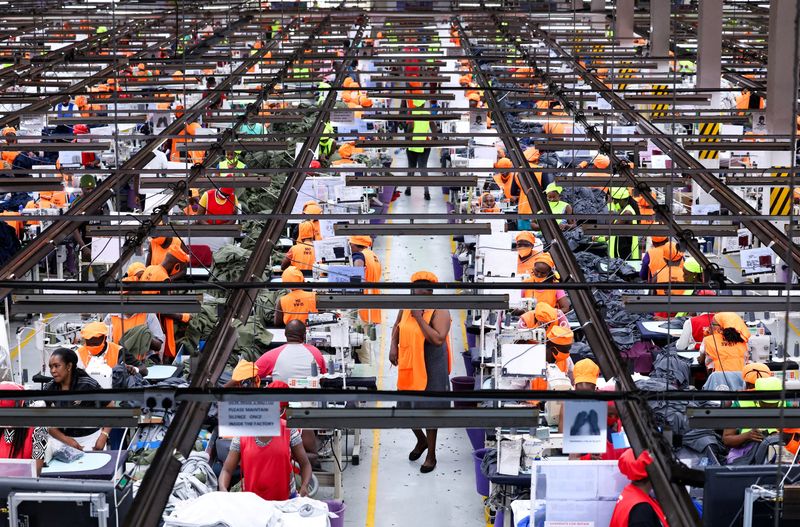Explainer-What does the expiry of a US trade deal mean for African economies?
By Duncan Miriri
NAIROBI (Reuters) -African officials and business executives are fretting over the impending expiry of a crucial, duty-free trade programme with the United States at the end of September, without any word from Washington on whether it will be extended or not.
Here are some questions and answers on the duty-free trade programme for qualifying products from eligible African nations, known as the African Growth and Opportunity Act, or AGOA.
WHAT IS THE AGOA TRADE AGREEMENT?
AGOA has been the centrepiece of U.S. economic engagement with Africa since it was enacted in 2000, seeking to foster investments, job creation and economic growth through provision of access to the vast U.S. consumer market.
AGOA is a preferential trade deal, offering duty-free, quota-free access for thousands of products to the eligible 32 African nations.
In return, beneficiary nations are expected to adhere to certain eligibility requirements around maintaining market-based economies and good governance. States are also expected to eliminate barriers to U.S. investments and trade.
Washington has been carrying out regular reviews on compliance. Countries kicked out of the deal in recent years for non-compliance include Ethiopia, Mali and Uganda.
The deal was extended for a decade in 2015. However, a bipartisan effort to secure a further extension last year did not get a vote in Congress. January’s return of President Donald Trump to the White House has further cast doubt on an extension, due to his tariff-driven trade stance.
HOW HAS THE TRADE DEAL BENEFITED AFRICAN ECONOMIES?
AGOA is credited with helping African nations increase U.S. exports, attracting investments and jobs.
The value of U.S. imports from AGOA beneficiaries rose 37% in the period from 2001 to end-2021, a U.N. trade agency study showed. The imports more than doubled when stripping out fluctuating U.S. demand for Angolan and Nigerian petroleum products.
South Africa, the continent’s most industrialised economy, enjoyed the lion’s share of the benefit. But economies including Kenya have been able to diversify exports away from raw commodities by focusing on finished apparel.
Average annual U.S. imports of $37.7 billion from AGOA nations in 2001-2021 amounted to around five times annual average U.S. aid extended to the countries of $7.6 billion, the U.N. found.
The deal also boosted economic growth, the office of the United States Trade Representative says, and helped foster economic and governance reforms.
The trade agreement has also provided a key source of hard currency for many economies on the continent that struggle with shortages of dollars for their international obligations.



Leave a Comment
Your email address will not be published. Required fields are marked *